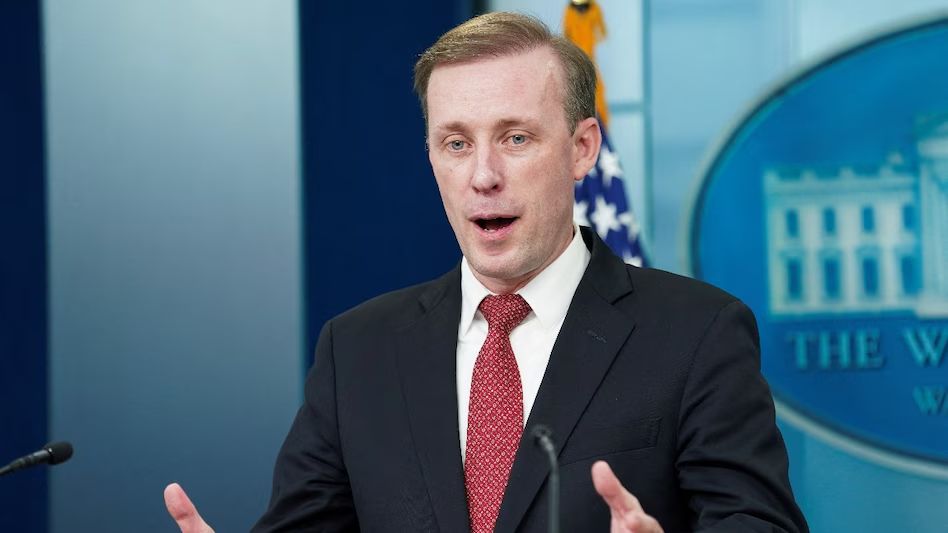
In a startling revelation that could reshape how observers view U.S. foreign policy during Donald Trump’s presidency, former U.S. National Security Advisor (NSA) Jake Sullivan has alleged that Trump weakened strategic ties with India to protect and advance his family’s business interests in Pakistan. The comments have sparked intense debate in Washington and New Delhi, raising fresh concerns about the role of personal financial interests in shaping international relations.
Sullivan’s Explosive Claim
Speaking in a recent interview, Jake Sullivan — now serving as President Joe Biden’s National Security Advisor — suggested that Trump’s personal business considerations had a direct impact on America’s South Asia policy.
According to Sullivan, Trump deliberately softened Washington’s stance toward Pakistan while simultaneously neglecting the growing strategic partnership with India. The reason, he claimed, was linked to ongoing Trump Organization business ventures in Pakistan that allegedly influenced the former president’s decision-making process.
“Instead of treating India as the indispensable partner it is, Trump repeatedly undercut the relationship, placing private financial interests above national interest,” Sullivan was quoted as saying.
The India-U.S. Strategic Partnership
The United States and India have long viewed each other as essential partners in countering China’s rise and promoting stability in the Indo-Pacific region. Under both Republican and Democratic administrations, ties deepened significantly through defense cooperation, intelligence sharing, and landmark agreements like the U.S.-India Civil Nuclear Deal and COMCASA (Communications Compatibility and Security Agreement).
However, during Trump’s presidency (2017–2021), the relationship took on a more transactional tone. While Trump cultivated a personal rapport with Indian Prime Minister Narendra Modi — famously sharing the stage at the “Howdy, Modi” event in Houston in 2019 — experts noted a lack of sustained policy depth.
Sullivan now argues that behind the photo ops, Trump’s decisions were guided less by geopolitics and more by private business stakes, specifically those tied to Pakistan.
Trump’s Pakistan Business Links
The Trump Organization has had long-standing real estate interests in Pakistan, including stalled projects in Karachi and Lahore. Reports indicate that even as Trump occupied the Oval Office, his family members continued to explore investment opportunities in the country.
Sullivan contends that these ties dampened Trump’s willingness to take a hard line on Pakistan, even as the country faced criticism from U.S. defense officials for allegedly harboring terrorist groups and destabilizing Afghanistan.
“Every time the Pentagon pressed for a tougher approach to Pakistan, Trump found a way to dial it back,” Sullivan said. “It was no coincidence that his family’s business partners were based in Pakistan.”
Fallout in Washington and New Delhi
Sullivan’s remarks have ignited a firestorm of criticism from Democratic lawmakers, who say the revelations underscore the need for stricter conflict-of-interest rules for U.S. presidents.
“Foreign policy should never be for sale. If these claims are true, Trump placed his personal profit over America’s security,” said Senator Elizabeth Warren.
In India, the reaction has been a mix of frustration and vindication. Policy experts in New Delhi, who often expressed concern during Trump’s presidency about the inconsistencies in U.S. policy, now feel their suspicions have been confirmed. “This explains why despite Modi and Trump’s chemistry, the U.S. did not fully back India on several key issues,” noted Indian foreign policy analyst C. Raja Mohan.
The Bigger Picture: India, Pakistan, and U.S. Policy
The United States has historically walked a fine line between India and Pakistan, balancing its security partnership with New Delhi against its need for Islamabad’s cooperation in Afghanistan. But under Trump, critics argue that the balance tilted unfavorably.
While Trump did authorize the suspension of some U.S. military aid to Pakistan in 2018, Sullivan asserts that these moves were largely symbolic gestures. Behind closed doors, he claims, Trump repeatedly blocked stronger actions that might have jeopardized his family’s financial ties.
This dynamic, Sullivan warns, not only weakened India-U.S. cooperation but also emboldened Pakistan at a time when Washington needed stronger alignment with New Delhi to counterbalance China’s influence.
Trump Camp Responds
Unsurprisingly, Trump’s allies have dismissed Sullivan’s remarks as politically motivated attacks. A spokesperson for the Trump Organization said, “The claims are baseless. President Trump always put America First. Business dealings never influenced policy decisions.”
Republican lawmakers have echoed this defense, accusing Sullivan of attempting to rewrite history to score political points ahead of the 2024 U.S. presidential election cycle.
Implications Going Forward
Whether or not Sullivan’s claims gain traction, the controversy underscores the fragile nature of India-U.S. ties and how they can be influenced by shifting priorities in Washington. Under President Biden, relations with India have rebounded, with renewed emphasis on the Quad alliance (India, U.S., Japan, Australia), technology cooperation, and defense interoperability.
Yet, the revelation adds another layer of complexity to Trump’s foreign policy legacy. If proven true, it suggests that personal profit motives shaped decisions with long-lasting implications for global stability.
Conclusion: A Warning for the Future
Jake Sullivan’s allegation — that Trump sidelined India-U.S. ties in favor of his family’s business with Pakistan — may spark deeper scrutiny into how personal interests intersect with public duty.
For India, the episode serves as a reminder that Washington’s strategic alignment cannot be taken for granted, especially when leadership changes hands. For the United States, it renews debate over the importance of conflict-of-interest laws for presidents.
Ultimately, the Trump India Pakistan ties Jake Sullivan controversy reveals how the personal and the political can collide, reshaping global alliances in ways that may take years to fully unravel.



